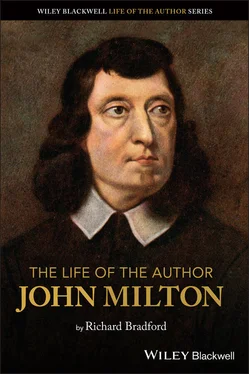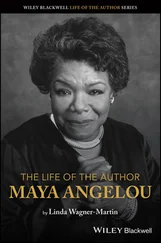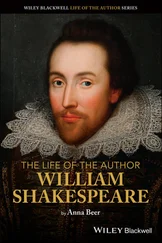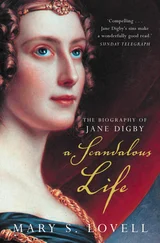For Milton it involved refractions and exaggerations of his life in England. He had already become something of a polymath, an archetypal Renaissance man, and now he found himself in the crucible of the Renaissance. In Rome, Naples and Florence he attended concerts, viewed private collections of pictures and sculpture and marvelled at the assembly of gothic, neoclassical and baroque styles that made these cities in themselves works of art. At Naples he stayed with Giovanni Manso, who kept a villa just outside the city. Arguably the most eminent Italian poet of the age, Manso had known Tasso and Marini, Italy’s finest sixteenth-century writers whose English equivalents would have been, respectively, Spenser and Donne. More significantly Manso, Tasso and Marini were part of a lineage which originated in the fourteenth century with Petrarch. They were the embodiments and inheritors of the essential Renaissance. (Before his visit to Italy Milton had become intimately familiar with the works of Dante Aligheri (1265–1321) whose Divine Comedy was the only major Christian epic prior to Paradise Lost with Spenser’s The Faerie Queene coming a close second for Protestant Englishmen.) It is certain that he would also have been aware of Tasso’s Gerusallemme liberate ( Jerusalem Delivered , 1581) which purported to be an accurate record of Christian successes during the crusades of the eleventh and twelfth centuries. It was a piece of pro-Christian propaganda but it should not be treated as a rewriting of long distant history. At beginning of the sixteenth century what remained of the Moorish population of Spain was still organising rebellions against the regime of Ferdinand and Isabella and when Milton arrived in Italy it was celebrated, at least in Catholic Europe, as one of the finest works of post-Classical literature. It was, like Spenser’s Faerie Queene , a political epic and Milton had entered an environment in which the purpose of poetic writing – was it only art or could it be the instrument of polemic and ideology? – was intensely debated. Within a decade he would address this question and his own role as a writer in his pamphlets.
Surprisingly, given Milton’s age and slightness of works in print, his own reputation went before him. He was received in the houses of the nobility and in private academies as a figure of coming greatness. During March 1639, for example, he was invited on two occasions to give readings of his Latin and English poems in the celebrated Svogliati Academy in Florence.
Italy projected him into an idyll of cosmopolitan art and at the same time offered him a perverse vision of religious authoritarianism. Practically all of his hosts were Catholics – he even stayed for a while in the Palace of Cardinal Berberini, the Pope’s nephew – and in general it seemed that a shared reverence for European culture transcended religious difference – Milton’s Protestant views were as well known as his poetry. Yet within this culture of intellectual and aesthetic exuberance he found also an atmosphere of repression. The Traveller’s Book of the English Jesuit College in Rome records that on the 30 October 1638 ‘Mr John Milton, with his servant’ along with three other named English visitors dined in the College ‘and were magnificently received’. There are no accounts of the exchanges of that evening but other evidence indicates that Milton during his stay in the city caused some controversy. He stayed with Manso after leaving Rome and intended to return to the Papal State following a brief excursion to Sicily. He was, however, advised by his host to change his plans and to depart from Italy for his own safety. He later reported that he was also ‘warned by merchants that they had learned through letters of plots laid against me by the English Jesuits, should I return to Rome, because of the freedom with which I had spoken about religion’ ( CPW , IV 1, p. 619). Manso was not reprimanding him; quite the contrary. He was advising Milton that his continued presence would be dangerous for both of them. One might suspect that Milton was representing himself with benefit of imaginative licence as a hero abroad, brave defender of the true faith in the heartland of Catholicism. A more objective witness, Nicolaas Heinsius, who had known some of the priests who were in Rome during Milton’s visit, wrote in 1653, ‘That Englishman [Milton] was hated by the Italians, among whom he lived a long time … because he both disputed freely about religion, and on any occasion whatever prated very bitterly against the Roman Pontiff’ (French, III, p. 322). Yet he returned to Rome. ‘What I was, if any man inquired, I concealed from no-one. For almost two months, in the very stronghold of the Pope, if anyone attacked the orthodox religion, [Protestantism] I openly, as before, defended it. Thus, by the will of God, I returned again in safety to Florence’ ( CPW , IV 1, p. 619). Here he was particularly distressed by his meeting with a legendary presence, the astronomer Galileo, who by Papal decree had effectively become a prisoner in his own villa close to the city. Galileo, the disinterested empiricist, had observed the universe and reported facts which went against religious orthodoxy. Six years later during the English Civil War, Milton, in Areopagitica , recalled the meeting with Galileo, ‘grown old a prisoner to the Inquisition, for thinking otherwise… than the Franciscan and Dominican licensers thought’. This might seem a predictably anti-Catholic comment but elsewhere in the same document Milton notes, with retrospective irony, that his Italian acquaintances had frequently expressed an admiration for England as the paragon of multi-denominational tolerance and free speech. He knew better.
It is more than likely that Milton’s period abroad served to complicate – sometimes undermine, often refresh – his views of the Continent acquired during his years of retirement and research outside London. Some of the figures and institutions he encountered, particularly Catholics, reinforced the stereotypes of the Puritan pamphlets but more often he came across a spectrum of unpredictabilities where indulgence and free thinking predominated. He wrote later:
I could recount what I have seen and heard in other Countries, where this kind of inquisition tyrannizes; when I have sat among their lerned men, for that honour I had, and bin counted happy to be born in such a place of Philosophic freedom, as they suppos’d England was, while themselvs did nothing but bemoan the servil condition into which lerning amongst them was brought; that this was it which had dampt the glory of Italian wits; that nothing had bin there writt’n now these many years but Flattery and fustian. There it was that I found and visited the famous Galileo … And though I knew that England then was groaning loudest under the Prelaticall yoak, neverthelesse I took it as a pledge of future happines, that other Nations were so perswaded of her liberty.
( CPW , II, pp. 537–8)
Despite enjoying the hospitality and erudition of many he was aware that exchanges on such fundamental issues as religious belief were sometimes a dangerous undertaking, especially in Rome. ‘I would not indeed begin a conversation about religion, but if questioned about my faith would hide nothing, whatever the consequences’ ( CPW , II, p. 794). He never had to endure the ‘consequences’ but he was aware that such a licence to relative free speech was granted to him because he was a foreigner. Citizens of what were once the pioneering states of the Renaissance could now only ‘bemoan’ their ‘servil condition’ and do so largely in private.
Before leaving Italy, Milton visited Venice, the most tolerant state of the region, probably of Europe. It maintained lay jurisdiction over the Inquisition and the censors, and continued to forbid entry to all Jesuits, until 1657. It even supported the sovereignty of the Protestant Grisons, in neighbouring Valtellina, against attempted Spanish incursions. Milton made no reference to his impressions of the city state but one wonders if its admirable yet precipitous condition inspired the passage in Areopagitica in which he expresses hope for the future of England, despite unpropitious circumstances: ‘I took it as a pledge of future happines, that other Nations were so perswaded of her liberty.’
Читать дальше












